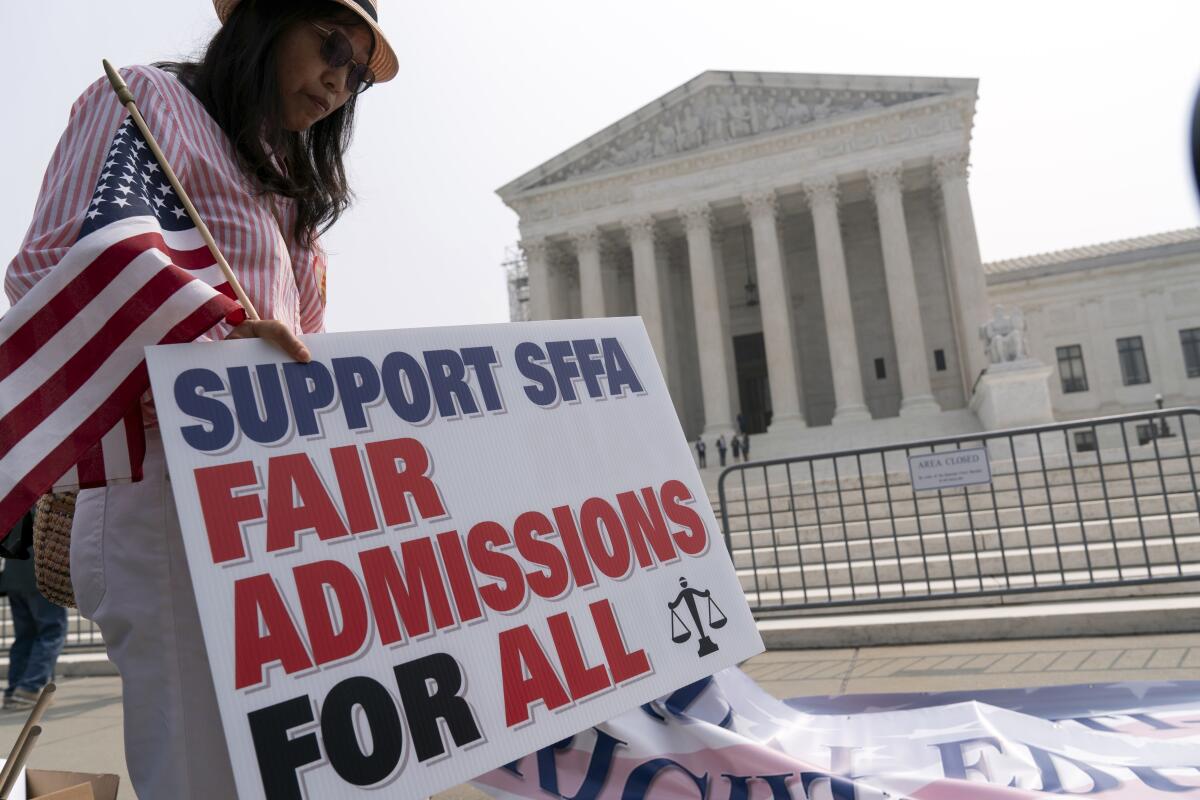Letters to the Editor: Is affirmative action a fair way to address racism in America?

- Share via
To the editor: The six Supreme Court justices who voted to outlaw affirmative action in college admissions live in a bubble, not the real world. (“On affirmative action, Justice Jackson blasts her colleagues’ ‘let-them-eat-cake obliviousness,’” Opinion, July 2)
In her dissent, Justice Ketanji Brown Jackson listed ways in which Black people have been disadvantaged by both laws and government policies since the days of slavery.
However, another important tool of disadvantage and discrimination was omitted: the GI Bill passed at the end of World War II.
As the law was being drafted, Rep. John Rankin of Mississippi ensured that the programs would be administered at the state, not the federal, level. Thus, the benefits of college tuition and low-cost home loans, among others, were much more difficult for Black veterans to obtain, further institutionalizing the inequity that continues to this day.
Barbara Luther, Orange
To the editor: It is rather disingenuous of columnist Robin Abcarian to be so incensed by the Supreme Court’ ruling against affirmative action in college admissions.
She omits the fact that even in liberal states such as California, voters have rejected college admissions that consider race. According to some polls, most African Americans oppose considering race in admissions.
Abcarian should be more concerned with the fact that colleges have used racial preferences to increase minority students’ enrollment because they recognize that these kids have been trapped in poor public schools.
The rise in the charter school movement and school choice programs will give minority children an opportunity for a better education. When they apply for college admission, they will be judged solely by their ability and not at all by the color of their skin.
Janet Polak, Beverly Hills
..
To the editor: Your coverage of the Supreme Court’s affirmative action ruling has been spot on. Little will change in the college admissions process as a result.
As a parent of a high school student entering his junior year, I have had several conversations about college and the admissions game. My conversations, however, are built on instilling the intrinsic value of hard work.
I have great sympathy for this generation of students that have been conned by this perverse admissions process. They have been raised to only understand extrinsic affirmation — in this case via acceptance letters from elite campuses.
All students would be better served by fully understanding that the journey of hard work is the reward and is far more beneficial than any congratulatory letter from a college admissions board.
Jason Y. Calizar, Torrance
..
To the editor: If America was a colorblind nation, millions of Black parents would not have to give the “talk” to their sons and daughters.
We are a multiracial nation with a history of inequality and injustice, and we should recognize that in our admission policies to colleges and universities. Perhaps Congress could pass a law requiring that admissions reflect the racial diversity of the country documented by the census.
June Thompson, Los Angeles





